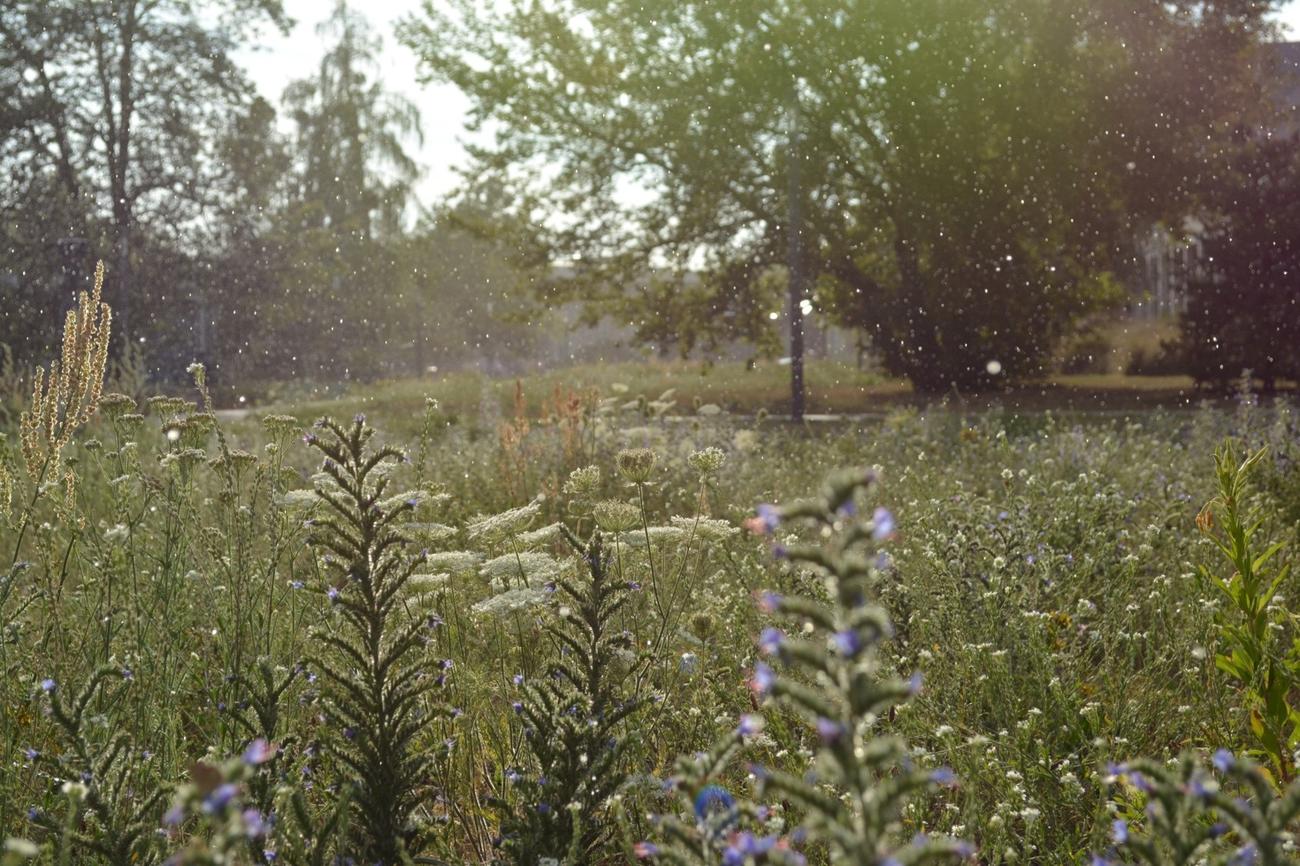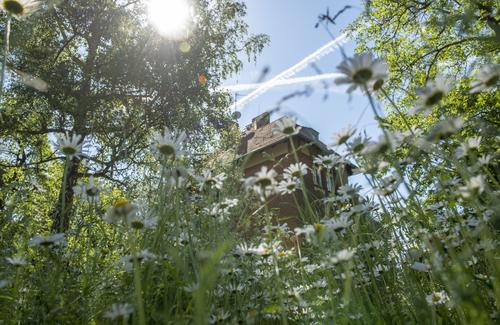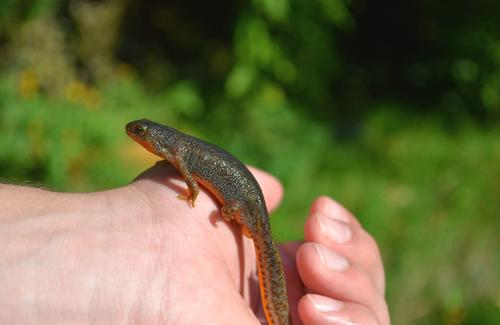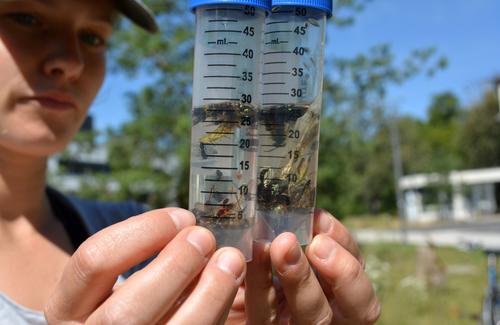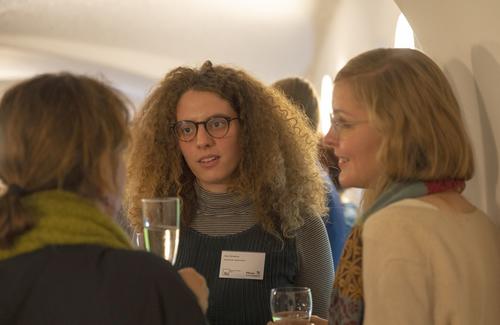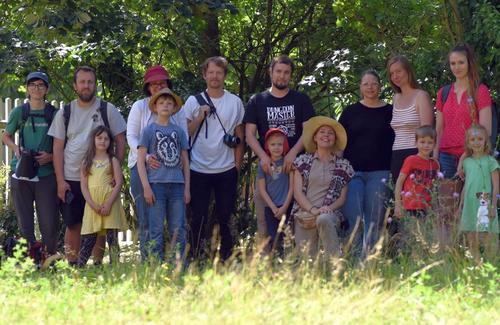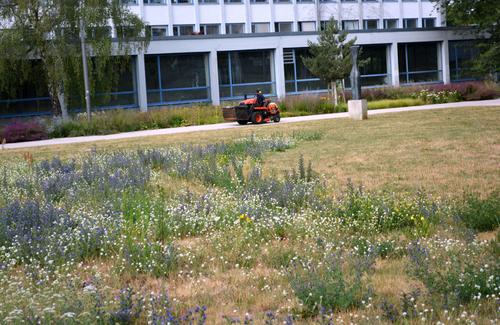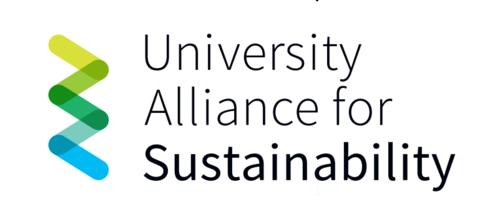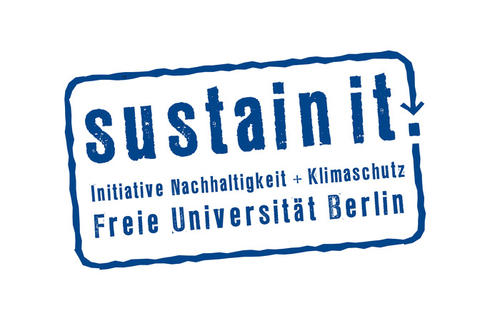Blooming Campus – A Living Campus
To integrate the topic of biodiversity more prominently into the university’s sustainability strategy alongside research and teaching, we have formed a cross-departmental and cross-institutional initiative. Under the title "Blooming Campus," our goal is to connect projects and stakeholders committed to promoting biological diversity on campus.
As the Blooming Campus initiative, we view the campus as a space where, together with numerous sustainability actors, particularly in the fields of climate and resource protection, we can demonstrate that societal transformation is possible. Humans and biodiversity are not mutually exclusive; on the contrary, human-shaped habitats can support high levels of biodiversity. To achieve this, we must challenge existing aesthetic norms and actively create space for urban wilderness. Through guided tours, workshops, and informational displays, we aim to make the emerging diversity tangible and highlight the value of urban biodiversity.
These films offer an opportunity to get to know the people advocating for the Blooming Campus initiative and to meet some of the wild bees that have made their home here!
Get to Know Our Team!
Blooming Campus
Wild Bees at FU
Wild Bees Film

